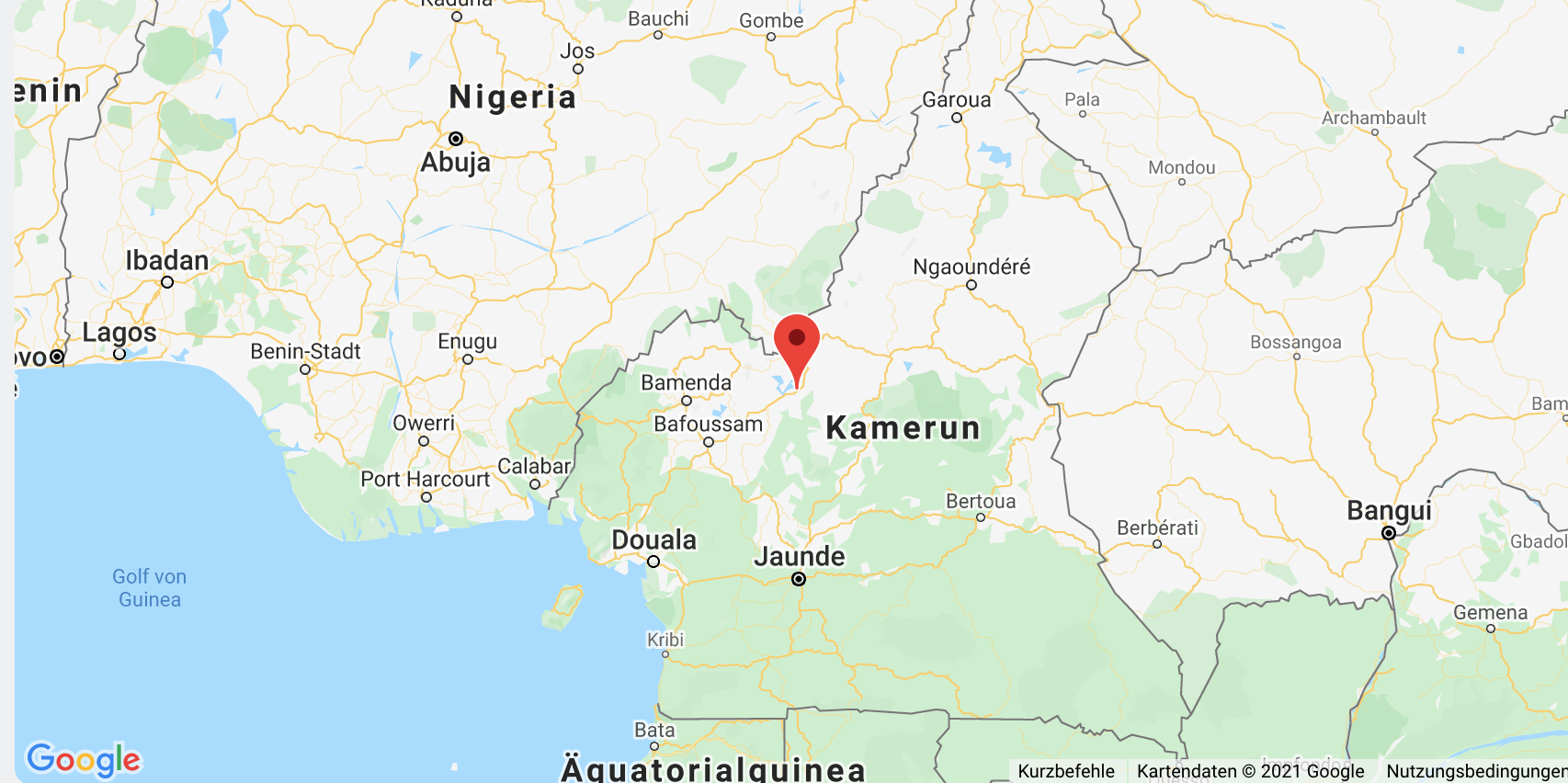Background
The indigenous Baka people originally lived in the rainforest as semi-nomadic hunters, fishermen and gatherers. Due to deforestation, poaching and mineral exploitation, the Baka have been displaced and now live predominantly in makeshift, usually nonrecognised settlements along transit roads. As an ethnic minority in Cameroon, the Baka experience social and judicial disadvantages, which are expressed among other things in unequal access to education. In addition, they suffer from inadequate healthcare services and limited access to drinking water.
The Project
FAIRMED has been active in Abong-Mbang since 2008 and the project is already in its third phase. Since the very beginning, the project has been focused above all on improving the health situation and living conditions of the people that live in the project region. In addition to the creation of healthcare structures, the Baka are supported in efforts to assert their civil, customary and land rights. They are empowered to gain greater and longstanding control of their development and to lead more self-determined lives. Over the longer term, the integration of the Baka in the health system and their participation in the health and economic development of the project area aims to decrease the discrimination that they face.
The respective communities as well as local partner organisations are directly involved in the planning and implementation of the project. FAIRMED works closely alongside the regional administration, the communities of the Abong-Mbang health district, the health authorities, the social department, agricultural services, the local organisations of the indigenous Baka ASABADJA association (Association des Baka de l'arrondissement du DJA), CADDAP (Center d'action pour le développement durable des autochtones pygmées) and AIDER, a local NGO.
Objectives and Activities
The core objective of the project is to improve the health of the indigenous Baka people and reinforce their self-determination. To this end, the project is pursuing three specific aims that are being realised through the following activities, among others:
Improvements to healthcare and the establishment of an intact infrastructure
Support in the establishment of health insurance in the communities within the health district.
Organisation of awareness-raising events for Baka women groups on the importance of prenatal check-ups and consultations.
Development and expansion of infrastructure for better hygiene and improved access to clean water. This activity includes the renovation of existing wells and the construction of new water points and sanitary facilities.
Training of project employees and health workers in the detection of neglected tropical diseases (NTDs).
Training of health workers in the communities.
Empowering the Baka to assert their civil and land rights
Reinforcing the interests of the Baka people through work with local partner organisations and by assisting them in the development of related measures.
Raising awareness in the Baka community of their rights and obligations.
Support for Baka organisations in efforts to secure land ownership in their villages.
Promotion of the Baka’s strategic participation in healthcare committees so that they can actively communicate their needs and are involved in health decisions.
Strengthening of institutions in the health district
Support in the establishment of a ‘multisectoral forum’ (partnership framework) on health in the Abong-Mbang health district.
Strengthening of community leadership in the coordination of this partnership framework.
Sustainability and Monitoring
All FAIRMED projects are implemented in cooperation with the local official agencies and with the inclusion of the population on the ground. The regional FAIRMED country offices are staffed exclusively by local employees. With this approach, and aided by consistent monitoring, problems can be identified in a timely manner, causes can be analysed, and methods and objectives can be adapted where necessary. The direct integration of health ministers and partner organisations also ensures that projects can be transferred at a later point and continued without the support of FAIRMED.
Beneficiaries and Budget
The population of the health district of Abong-Mbang is over 80,000. All Baka communities as well as the native Bantu in the project area are directly supported by the project, and the general populace is also able to benefit indirectly from an improved health system. The total budget for the project period 2019 to 2023 is CHF 1,082,000.
No one should suffer or die from a curable disease
Mou Ferdinand • Country Coordinator Cameroon
Support FAIRMED